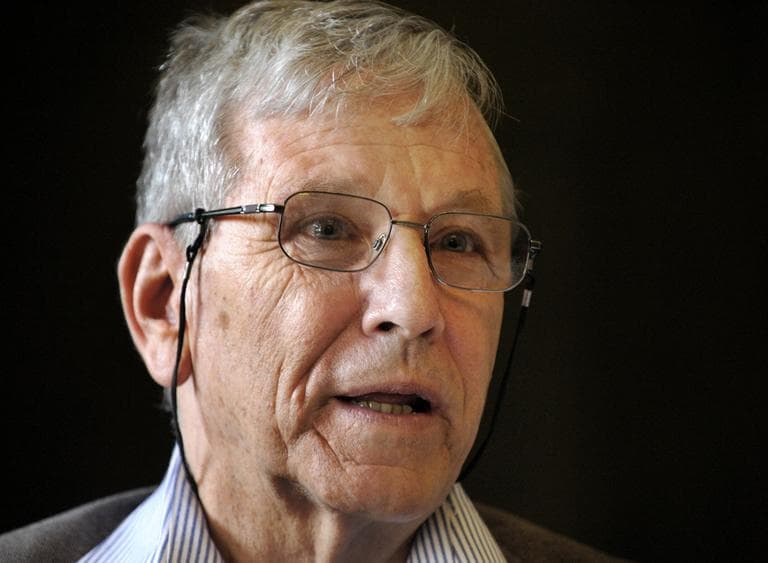Advertisement
Amos Oz On Israeli Life
ResumeFamed writer Amos Oz talks about the hidden truths of everyday life in Israel.

Amos Oz is at the top of the literary world in Israel. And often in opposition to Israeli policy. He’s warned for years about the corrupting effect of occupation of Palestinian territories. Pushed for a two-state solution. Argued for peace. But he knows it’s not simple when two peoples dream of the same land.
In his latest work, Amos Oz goes deep into the life of a fictional village in Israel, where people hear digging in the night. Under the house. And they don’t know why.
Up next On Point: a conversation with Israeli novelist and journalist, Amos Oz.
-Tom Ashbrook
Guests
Amos Oz, author of the new book Scenes From Village Life.
From Tom's Reading List
The New Yorker "Amos Oz is the best-known novelist in Israel. For eighteen years, he has lived in the desert outpost of Arad, a town of twenty-eight thousand, between Be’er Sheva and the Dead Sea."
New Statesman "Israel's discriminatory policies based on race and religious affiliation are well documented. In 2008, Miguel d'Escoto Brockmann, then president of the UN general assembly, said that the state's actions on the West Bank and in the Gaza Strip resembled "the apartheid of an earlier era". Aware that he was risking censure, he added: "We must not be afraid to call something what it is." Others, from the South African international law scholar John Dugard to Desmond Tutu, have echoed his sentiment."
Jerusalem Post "Like so many others in Israel and Palestine, I, too, sat transfixed in front of the television screen as I listened to the speeches at the UN by US President Barack Obama, Prime Minister Benjamin Netanyahu and Palestinian Authority President Mahmoud Abbas."
This program aired on October 31, 2011.